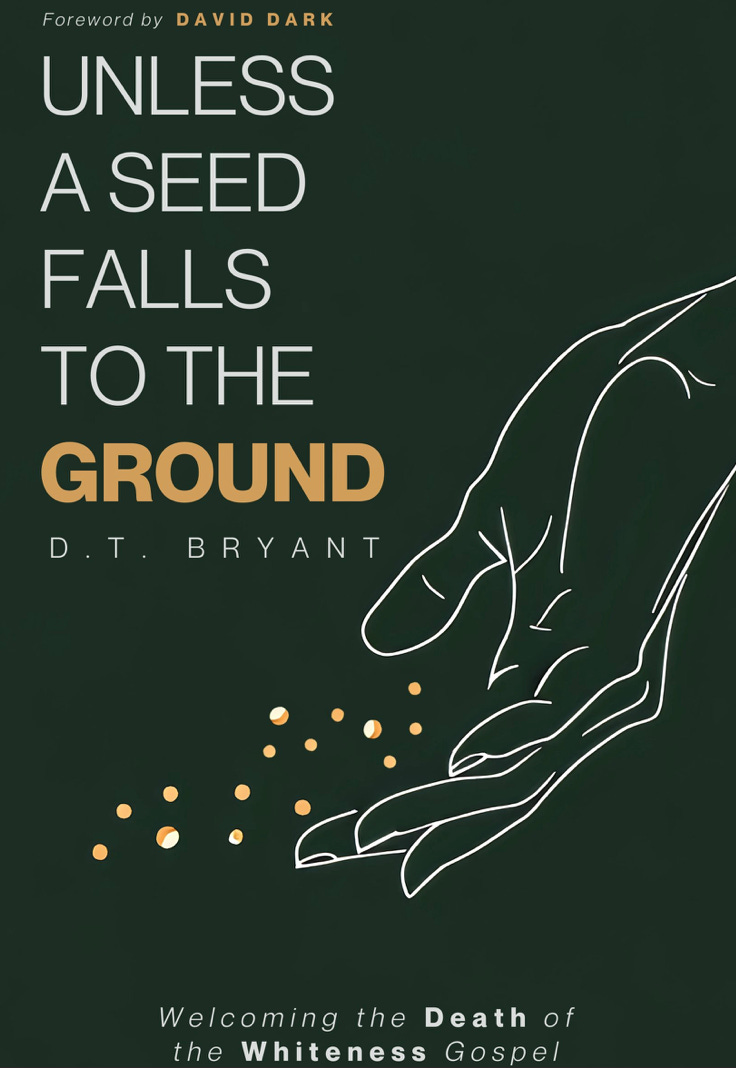My 17-point Pastoral Mindset I Try and Take During Weird Political Seasons or My 17-point Political Mindset I Try and Take During Weird Pastoral Seasons 🤔
Hi everyone, first I wanted to make sure you knew about the Renewing Faith Conference coming up designed specifically for forward-looking Christian pastors, staff members, lay leaders, spiritual directors, chaplains, and those outside traditional church settings. Whether you consider yourself a progressive mainliner, a quiet contemplative, a spiritual seeker, or a “deconstructing” post-evangelical, this conference might serve as something that reignites your passion and help you find a life-giving purpose.
At the Renewing Faith Conference, you will:
Grow and Deepen Your Theological Roots: Participate in thought-provoking discussions led by renowned theologians and ministry leaders.
Gain Fresh Perspectives on Ministry: Hear and discuss ways to incorporate process and open-relational theology and practice into your preaching, ministry, community, and personal faith journey.
Build Lasting Connections: Network with like-minded Christians who share your commitment to fresh expressions of Christianity, forming lasting relationships and networks of support.
Embody Your Faith: Experience worship and practices that connect mind, body, and spirit through the arts and movement, fostering a holistic approach to ministry and well-being.
For all the information, please see this link 👉🏼 … Renewing Faith.
And now, my 17-point pastoral mindset …
I try and be aware of the scapegoating energy that fuels the binary political engine. I often think of Nietzsche here, "Beware to fight the monster lest you become the monster."
There are exceptions, but as a rule, I try not to name specific people that I'm directly opposed to. I do this for two reasons: 1-Doing so makes it easier for scapegoating energy to take over. 2-It tends to over-validate the strength of that particular person and I really hate over-validating the strength of stupid people.
I’m attempting to discipline myself to keep in mind that if that one person/party/event is the source of all problems, then they/it become the source of all solutions, which serves to put me in a position of disempowerment.
I’ve never advertised who I vote for from "the pulpit." Maybe that’ll change in the future, but that’s been the MO so far.
I’m uncomfortable endorsing any one political party (though, I will say that the party who has been loudly proclaiming they are the Christian party makes me the most uncomfortablist). I like that I’m registered as an independent and have always felt as a pastor that it was the best position to be in.
I work hard at not being reactionary, for if one is reactionary in this day and age, literally, one could spend all of their time reacting. I do recognize that people have been abused by a particular person or system and that there’s a difference between “reactionary” and naming injustice. So, yes, if someone’s been hurt, maniuplated, or abused I firmly believe they must have the space to talk about their experience.
I'm interested in hearing reasonably intelligent opinions from both sides of the issue. Sometimes I have to pretend but I usually try if for no other reason than I know it helps me be a healthier person. “Listening,” as Valarie Kaur says, “doesn’t grant the other side legitimacy. It grants them humanity—and preserves our own.”
(7a - Christian nationalism is not a reasonbly intelligent option.)
I suspect that anti-love masquerades as impatience.
When I’m thinking straight, I realize that I’m never really able to stand outside of my own critique. I am, at some level, a part of that which I am fighting against.
I never get far away from the disturbing Giardian insight that it’s not our differences that drives our conflict; it’s our sameness.
I hear a lot these days about “not giving up the fight.” I don’t always know what people mean, but I do think that Americans have been known to glorify the fight. To fight, we need an enemy. Of course, the best way to make enemies is to project hatred, insecurity, and violence onto an outsider. Once we see them clearly, we feel justified in starting something. (Just war.)
In my lifetime, it's incredible how many enemies I've been instructed to have … Russians are the enemy, obesity is the enemy, liberal agenda is the enemy, corporate giants, the pres-elect, woke-ism, fundamentalism, relativism, etc.
Rather than promoting education, I’ve been told to make war on illiteracy. Rather than living a peaceable alternative during Advent, I have to fight to keep Christ in Christmas. As Ursula K. Le Guin points out "We make war on drugs, war on Viet Nam, war on Iraq, war on obesity, war on terror, war on poverty. We see death, the terms on which we have life, as an enemy that must be defeated at all costs."Meanwhile, just wars usually lead to un-just peace with the un-just-ness flowing both ways. Hate is no respecter of ideology, race, ethnicity, religious, sexual, economic, or political persuasion. Hate cares about nothing except more hate.
I think the evolution of AmericaI think the evolution of myself is directly connected to an ability to slow down, be culpabile, to allow my own violence to settle and dissipate. It's hard to see how not doing something (like not throwing the punch) can be more productive than doing something (like throwing the punch), but I know (I know this, right?) that not doing something can be the more difficult move to make. I've long thought that the problem with the word pacifist is that it sounds so much like passive, but refusing to project violence is anything but passive.I cannot be an expert on all the issues, but when I want to learn I do my best to vet sources. (Btw, one tool I've used is Ad Fontes Media.)
I remind myself that reading 47 lines down on some social media comment section and getting worked up over someone’s unintelligent scapegoating comment is probably not an evolved way for me to vet issues.
Algorithmic-mediated tribalism is real, but only as I willingly enslave myself, more and more, to the algorithm.
I think it’s possible that conservatives gain some kind of psychic enjoyment out of kicking people out and that progressives gain some kind of psychic enjoyment out of being the ones kicked out. 🤔 (I wish I could remember when/where I begin to entertain this idea, but it’s not original with me. I think it’s from something McGowen and Engly said on their Why Theory Podcast.)
About ten or twelve years ago, I read Walter Wink’s insight into Jesus’s subversive comments about “walking the second mile,” and “turning the other cheek.” It struck a chord. I still feel the vibration. Sometimes, the vibrating stirs up anger; sometimes, it stirs up grace, but it never fails to stir up something that influences the way I think about all of this.
Speaking of JC, look, it’s not the donkey or the elephant I am trying to follow… I’m trying to follow the lamb.
What about you? Anything you want to comment on? Anything different you want to offer? I mean, be nice, but yes, offer away.
Hey, today, my friend
, launches his new book Unless a Seed Falls to the Ground: Welcoming the Death of Whiteness. I hope you’ll check it out!







Thank you, Jonathan!